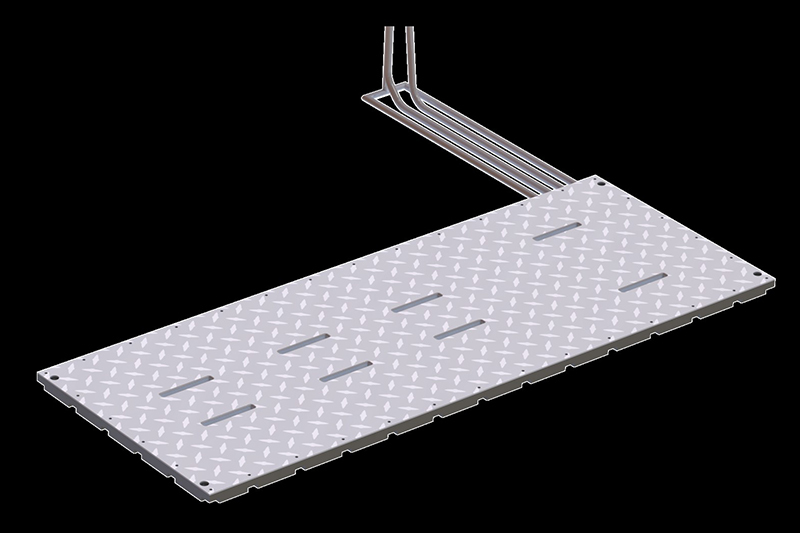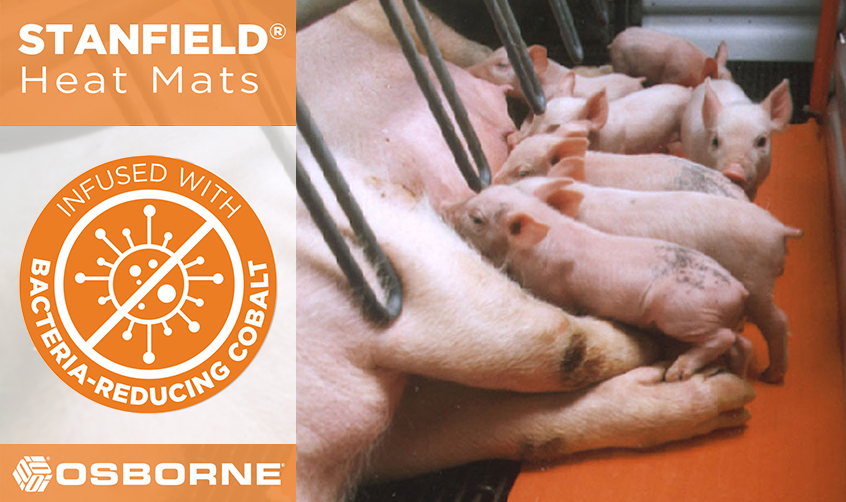



IHT Group to manufacture, sell hog-cooling technology in North America
The cooling technology was developed at Purdue UniversityIHT Group, based in Winnipeg, Canada, is bringing patented cooling pad technology for hogs to the North American market in spring 2024, according to a recent press release. The technology was designed by researchers in Purdue University's Department of Agricultural and Biological Engineering and Department of Animal Sciences.
The pads are 2-foot-by-4-foot aluminum tread plates on top of copper pipes that circulate water. Sensors in the pads determine if the hog is too hot and circulate new water to keep the pad cool.
Heat harms hogs
Record heat across North America impacts not just people but also animals, including farmers' livestock. Francisco Cabezon, research president at Pipestone Research, which specialises in swine health research and recommendations, said overheating can cause problems for hogs.
"Under heat stress conditions, lactating sows reduce their feed intake and milk output to attempt to reduce their metabolic heat production. In consequence, their piglet growth and subsequent reproductive performance is negatively affected," said Cabezon. "In boars, some negative impacts of heat stress are decreased sperm motility and concentration and an increase in sperm abnormalities."
Chris Grant, IHT president, said farmers benefit when their swine aren't affected by heat stress.
"Animal welfare and well-being improve when heat stress is reduced," Grant said. "Farmers will have a larger, healthier animal that can grow better and has a better chance of survivability at the next stage."

Tests prove benefits
Allan Schinckel, a professor in Purdue's Department of Animal Sciences, and Robert M. Stwalley III, associate clinical professor in Purdue's Department of Agricultural and Biological Engineering, designed the cooling pads.
"The Purdue-developed IHT active swine cooling pads will represent a paradigm shift in hog production, increasing both operational efficiency and animal welfare," Stwalley said. "We are refining the pads and their materials, currently testing stainless steel pipes versus copper pipes to continue optimizing their performance."
Schinckel said the initial research showed the cooling pads make sows more comfortable.
"We saw a decrease in their overall respiration rates, slightly lower internal temperatures and lower daily maximum temperatures. The sows also produced more heat, which corresponded to an increase in their feed intake and milk production; this improves animal welfare and well-being," Schinckel said. "Piglets who were on the cooling pads had a 26% increase in weaning weight and 7.2% increase in feed intake."
The initial research at Purdue also showed the cooling pads maintained boars' semen quality by reducing heat stress abnormalities. The pads kept the boars cool even at high environmental temperatures and high humidity. They also kept the boars' respiration rate low.
Peer-reviewed papers about the initial research have been published in journals including Applied Engineering in Agriculture, Applied Animal Science, Computers and Electronics in Agriculture, Journal of Animal Science, Livestock Science, The Professional Animal Scientist and the Journal of the ASABE (American Society of Agricultural and Biological Engineers).
Schinckel will present a poster about the effects of cooling pads on sows prior to farrowing and mid and late lactation at the Allen D. Leman Swine Conference, which takes place Sept. 16-19 at Saint Paul River Centre in Minnesota.
Initial research on the cooling pads' effects on boars, sows and gilts conducted at Purdue was funded by grants from the US Department of Agriculture's National Institute of Food and Agriculture and the Agricultural Science and Extension for Economic Development, or AgSEED, program from Purdue's College of Agriculture. IHT Group supported beta tests at Pipestone Research in Minnesota, led by Cabezon, and at Purdue and two commercial facilities in the US IHT Group funded a graduate student at Purdue during the beta test period. Data from those tests is being complied for summarisation for analyses.









